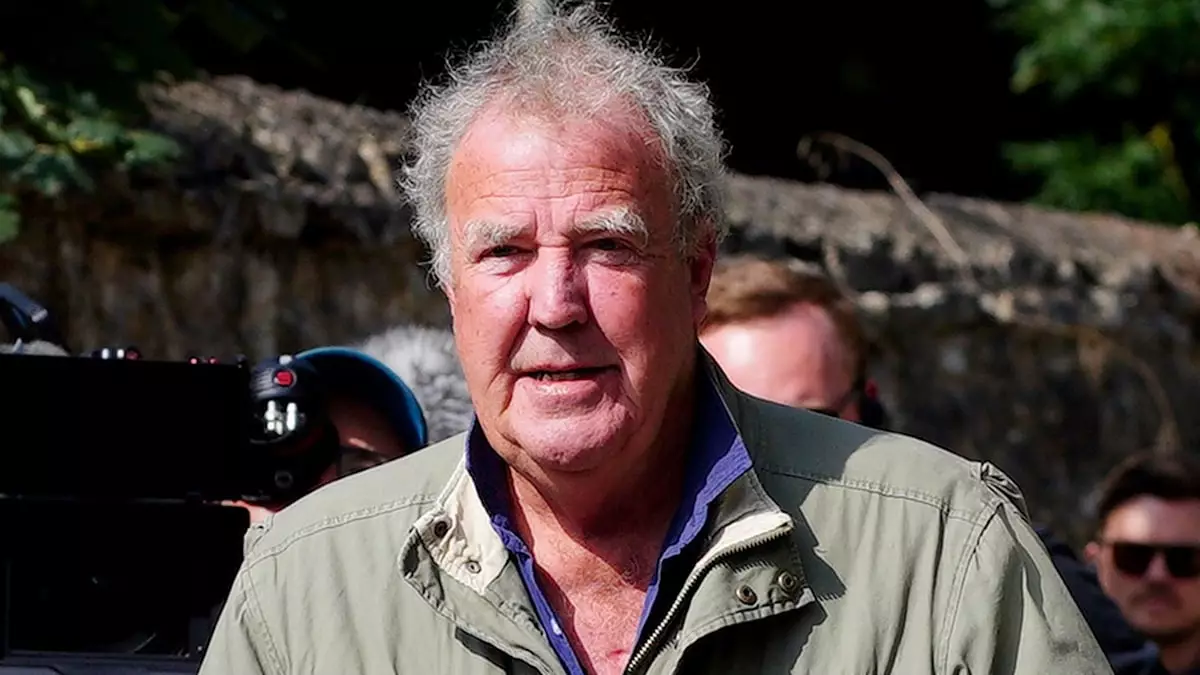In the unpredictable world of social media, few figures generate as much engagement as Jeremy Clarkson. Known for his sardonic humor and unapologetic personality, the former Top Gear host recently found himself at the center of a social media storm—pun intended. Clarkson took to Instagram to share a juxtaposed reality of weather conditions impacting the UK due to Storm Éowyn. With a request for prayers alongside a comedic twist, he sparked a conversation that blurred the lines between humor and insensitivity, reflecting broader societal attitudes toward public figures and calamities.
Jeremy Clarkson, who wrestles with the challenges of running a 1,000-acre farm in Chipping Norton, revealed his less-than-serious stance on the severe weather hitting the country. His video, showcasing sunlit fields when others were grappling with 90 mph winds, epitomizes Clarkson’s penchant for irony. The stark contrast between the tranquility of his farm and the chaos elsewhere could lead to amusement, but it inevitably raises questions about the appropriateness of his levity amidst widespread destruction and danger. Fans responded in droves, some laughing along with him, while others criticized him for being tone-deaf to the very real struggles many were facing.
This incident encapsulates the dual nature of social media interactions. While humor can serve as a coping mechanism during crises, it can also stir resentment when it appears dismissive of others’ suffering. In this case, the comments section became a battleground for supporters and detractors alike, with reactions ranging from affectionate jests to pointed critiques, signaling a societal divide on the thresholds of humor.
Divided Responses: Sarcasm or Sensitivity?
The reception of Clarkson’s lighthearted video reiterates how celebrity behaviors are often scrutinized through a moral lens. Supporters commented with light-heartedness complementing Clarkson’s irreverent style: “Good heavens! Run!” and “Hope it will be better soon.” Yet, there was an equally vocal segment that characterized his actions as careless, exclaiming that not everyone was in a position to laugh in the face of adversity.
The pushback wasn’t just about the tone used; it was a reflection of a broader sentiment regarding empathy in public discourse. Amid devastation, some users implored accountability from influencers like Clarkson—a figure who, despite his celebrity status, traverses through the same societal fabric as everyday individuals. The juxtaposition of those praising his humor with individuals insisting on sensitivity reveals the complexities that celebrities face in establishing their public personas, especially in times of crisis.
Adding another layer to the narrative, Clarkson faced criticism not just for his flippancy regarding the storm, but also for the prices at his farm shop. With reports of extravagant prices—such as a £200 pie—surfacing online, he found himself defensively clarifying the situation on X. His witty retort, pointing out that the pie was absurdly overpriced due to being “not made of food,” showcases his trademark humor while attempting to defuse public outrage.
Clarkson’s defiance in the face of online backlash emphasizes a broader issue within the realms of viral fame and entrepreneurship. As personalities transition into business owners, they must face scrutiny not only for their celebrity persona but also for the quality and value of their products. It makes for a precarious tightrope walk; the potential for humor must be balanced with the genuine concerns of customers perceiving exploitation in pricing.
The dual incidents involving Storm Éowyn and the pricey pie illuminate the often treacherous waters that public figures navigate concerning their social media presence. What is amusing to some can be considered distasteful to others, revealing a complex landscape where satire and social empathy collide. As we engage, laugh, and sometimes roll our eyes at the likes of Clarkson, it serves as a reminder of the evolving dynamics of public discourse, where humor must be wielded with care, especially when so many eyes are watching. In the end, whether it’s a storm or a pie, context is everything—an element that continues to shape our reactions and interactions in the unforgiving arena of social media.

